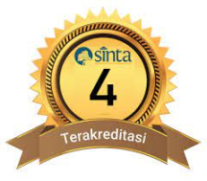The Effectiveness of Cognitive Conflict-Based Learning Models Using Interactive Multimedia
Abstract
Full Text:
PDFReferences
M. Dhanil and F. Mufit, “Design and Validity of Interactive Multimedia Based on Cognitive Conflict on Static Fluid Using Adobe Animate CC 2019,” J. Penelit. Pengemb. Pendidik. Fis., vol. 7, no. 2, pp. 177–190, 2021, doi: 10.21009/1.07210.
S. F. Anggraini et al., “The Validity of Interactive Multimedia Based on Cognitive Conflict on Elasticity Materials Using Adobe Animate CC 2019,” vol. 8, no. 1, pp. 13–22, 2022.
R. Defrianti, F. Mufit, Gusnedi, W. S. Dewi, and Z. Hidayat, “Design of Cognitive Conflict-Based Teaching Materials Integrating Real Experiment Video Analysis on Momentum and Impulse to Improve Students’ Concept Understanding,” Pillar Phys. Educ., vol. 14, no. 2, pp. 97–108, 2021.
S. I. Ana, “Effect Size Of Model Application React On Physics Student ’ S Achievement,” vol. 15, no. 4, pp. 296–300, 2022.
R. Puspitasari, F. Mufit, and Asrizal, “Conditions of learning physics and students’ understanding of the concept of motion during the covid-19 pandemic,” J. Phys. Conf. Ser., vol. 1876, no. 1, 2021, doi: 10.1088/1742-6596/1876/1/012045.
A. S. Widiastuti and J. Purwanto, “Remediasi Miskonsepsi Pada Materi Gelombang Bunyi Dengan Pendekatan Konstruktivisme Metode 5E Di SMA N 1 Turi,” Pros. SNFA (Seminar Nas. Fis. dan Apl., vol. 4, no. 2000, p. 25, 2019, doi: 10.20961/prosidingsnfa.v4i0.35909.
V. Pratama, S. F. Anggraini, H. Yusri, and F. Mufit, “Disain dan Validitas E-Modul Interaktif Berbasis Konflik Kognitif untuk Remediasi Miskonsepsi Siswa pada Konsep Gaya,” J. Eksakta Pendidik., vol. 5, no. 1, pp. 68–76, 2021, doi: 10.24036/jep/vol5-iss1/525.
F. Mufit, A. Asrizal, and R. Puspitasari, “Meta-Analysis of the Effect of Cognitive Conflict on Physics Learning,” J. Penelit. Pengemb. Pendidik. Fis., vol. 6, no. 2, pp. 267–278, 2020, doi: 10.21009/1.06213.
R. Entino, E. Hariyono, and N. A. Lestari, “Analisis Miskonsepsi Peserta Didik Sekolah Menengah Atas pada materi Fisika,” PENDIPA J. Sci. Educ., vol. 6, no. 1, pp. 177–182, 2021, doi: 10.33369/pendipa.6.1.177-182.
I. Luthfi, F. Mufit, and M. R. N. Putri, “Design of Physical Teaching Materials Based on Cognitive Conflict Learning in Direct Current Electricity Integrating Virtual Laboratory,” Pillar Phys. Educ., vol. 14, no. 1, p. 37, 2021, doi: 10.24036/10771171074.
F. Mufit and A. D. Fitri, “The Analysis of Experiment Video on Cognitive Conflict- Based Teaching Materials to Enhance Momentum-Impulse Concepts Understanding,” vol. 8, no. 2, pp. 293–304, 2022.
DOI: http://dx.doi.org/10.24036/14389171074








